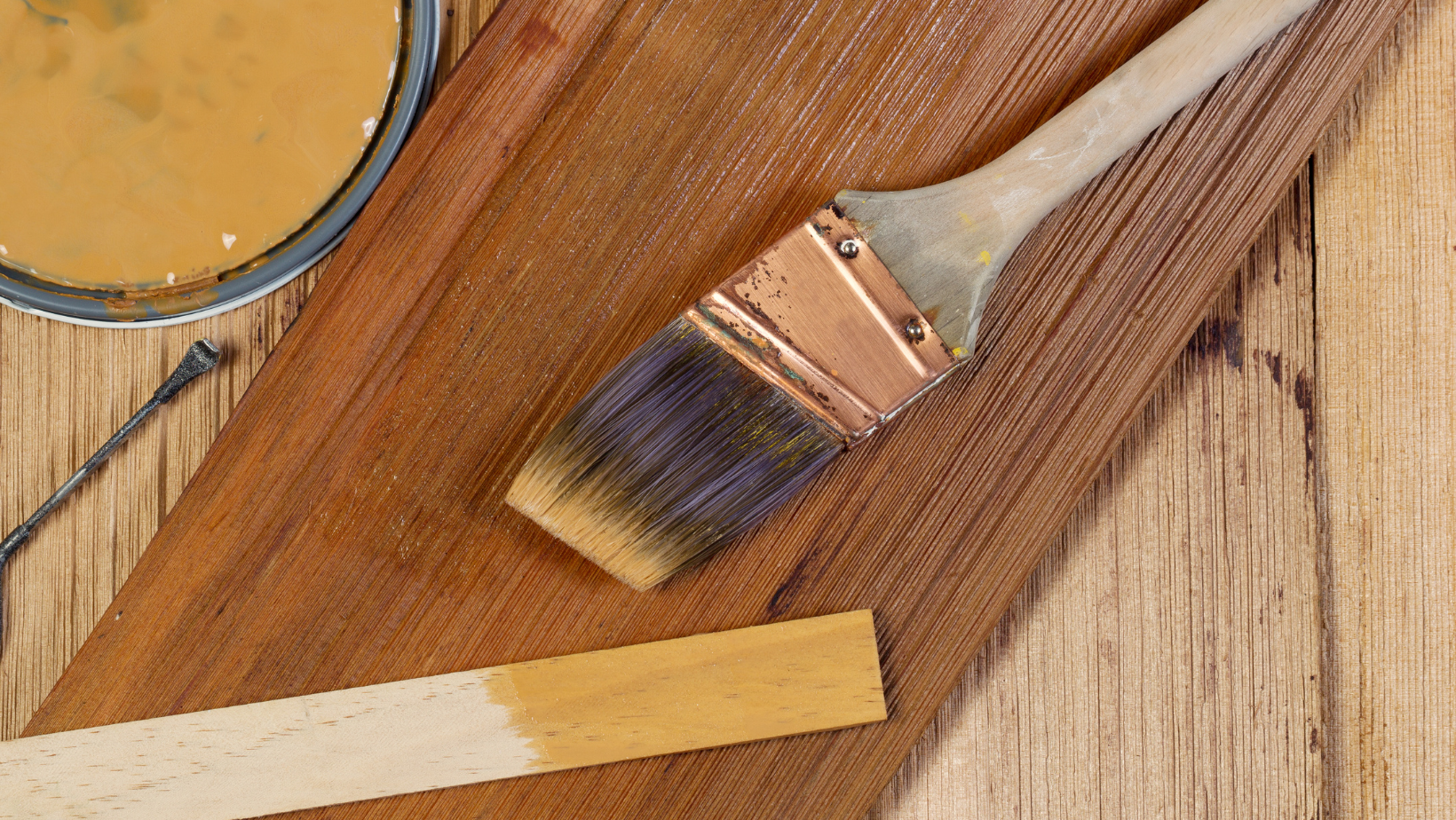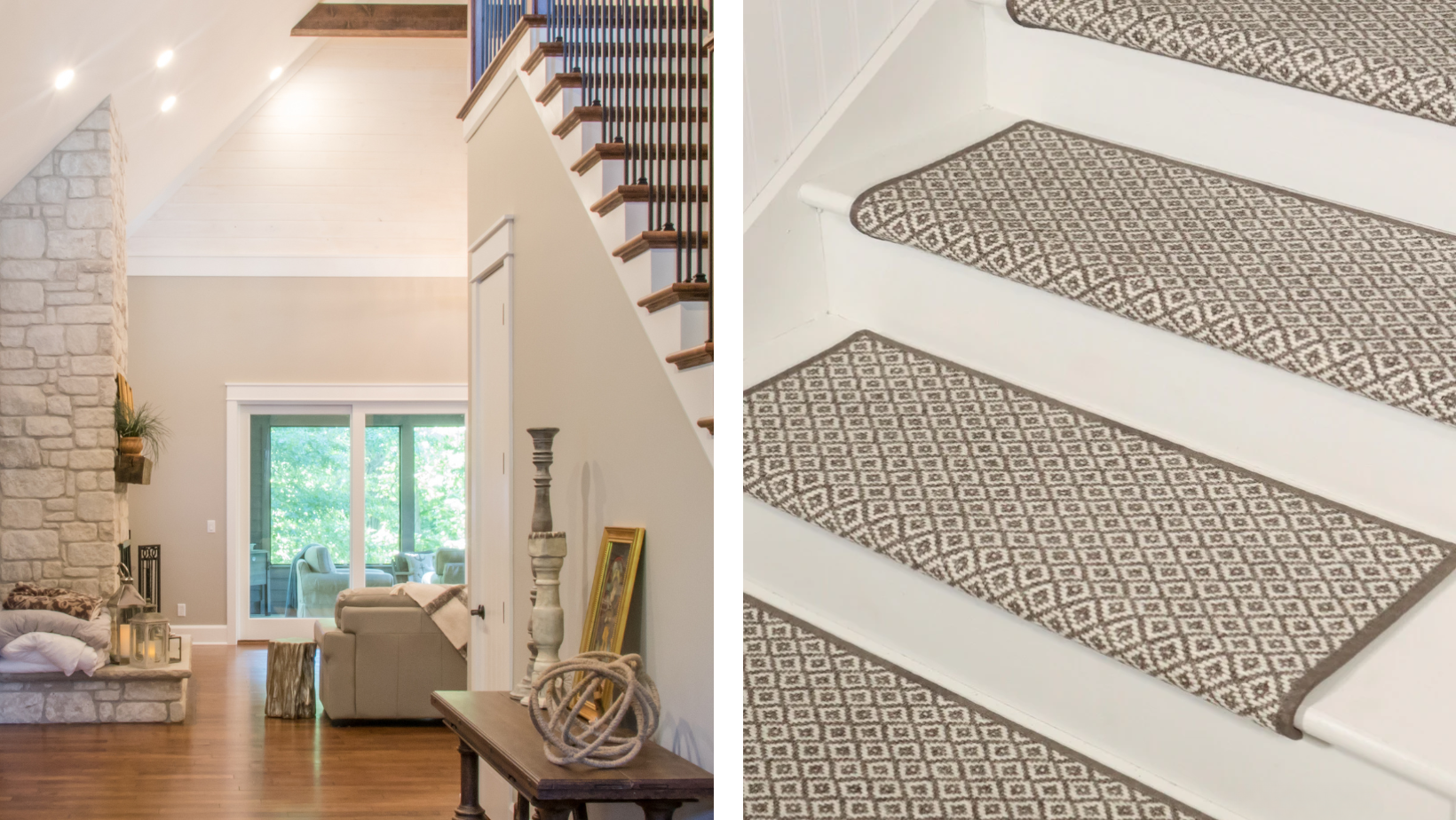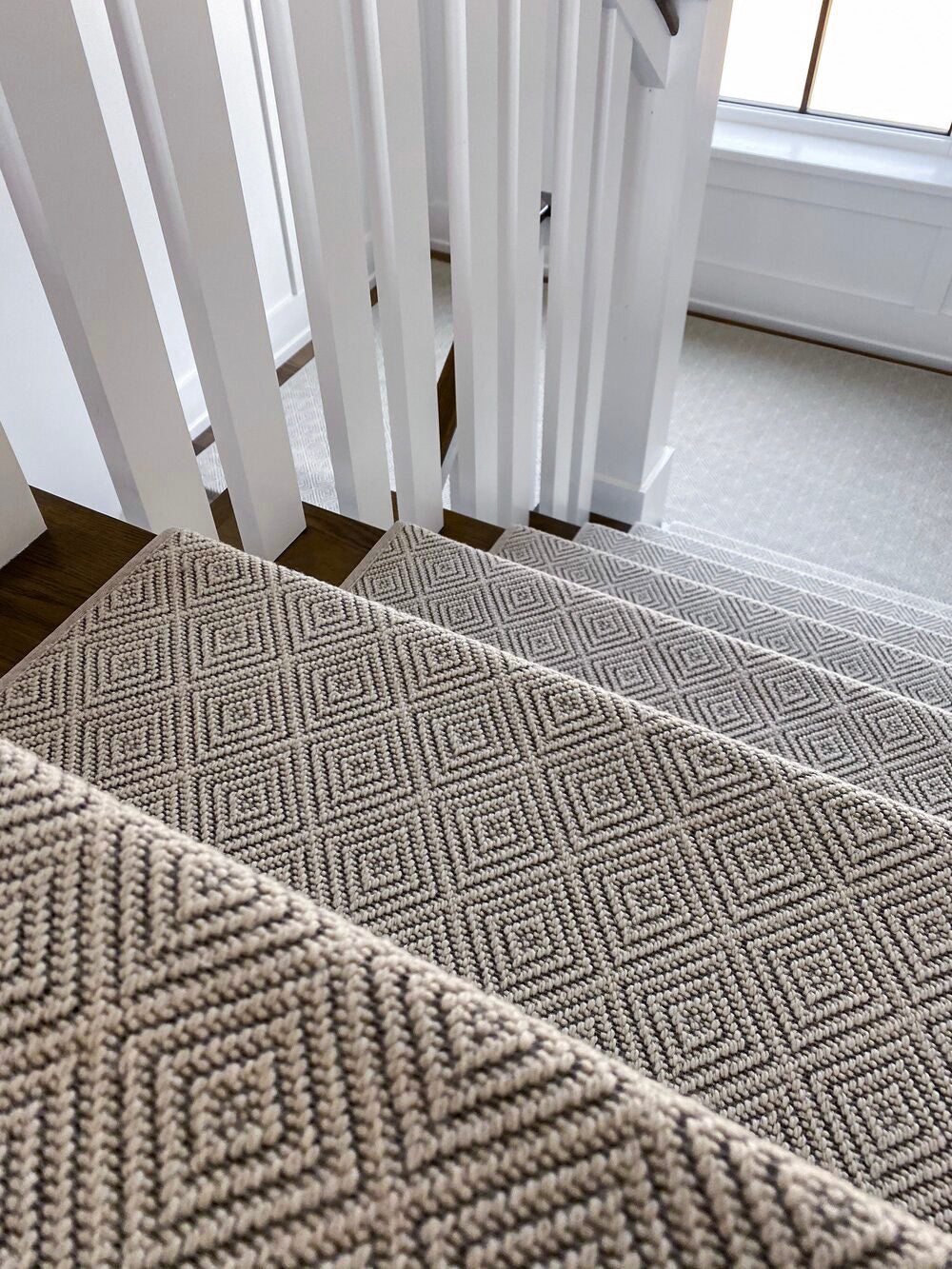Tired of looking at scuffed, outdated stairs?
If you're asking "can you paint stair treads?"
The answer is yes—and it’s easier than most homeowners think.
With the right prep and materials, painting your stair treads can completely transform the look of your staircase.
This guide will walk you through every step of the process, from surface prep to finishing touches.
You’ll also learn how to add carpet stair treads after painting to improve safety and style.
Whether you want a bold new customized look or a simple refresh, this article gives you the tools to get it done right.
Why Painting Stair Treads Is Worth It
Painting stair treads is one of the most affordable ways to refresh your home.
The stairs are often the first thing people see when they walk into your house.
They deserve attention, and a well-painted staircase can become a standout feature in your home.
Maybe your wood treads are scuffed, stained, or just feel outdated.
A simple coat of paint can make them look brand new again.
You also have full control of the look—white for classic, black for drama, or sage green for warmth.
And if you change your mind later? You can repaint or even layer over with a stair runner or carpet treads.
Painting Stair Treads vs. Staining Them
If you’re debating between painting or staining, think about the final look and the wood type.
Painting gives full color coverage and works well for worn wood.
Staining enhances the natural grain but won’t hide imperfections.
Not sure how to stain stair treads?
It’s a similar process to painting—cleaning, sanding, applying the stain, and finishing with a clear coat.
If your stairs are in good shape and you want a natural finish, staining might be your go-to.
But if you want a color change or to cover up damage, painting is the better choice.
How to Prep Stair Treads for Paint
A good paint job starts with the prep.
If you skip this part, the paint may peel, chip, or look uneven.
1. Clean the Treads Thoroughly
Use soap and warm water to scrub away dust, dirt, and grease.
Dry the surface completely with a clean towel or let it air dry for a few hours.
2. Fill Any Holes or Dents
Use a wood filler to smooth out any imperfections.
Let it dry fully and sand it down until the surface is level.
3. Sand the Surface
Even if the wood looks smooth, sanding helps the paint stick.
Use fine-grit sandpaper and go over the entire tread surface.
Then wipe off all dust using a damp cloth.
4. Use Painter’s Tape
Tape off any areas you don’t want painted—such as stair risers with carpet, walls, or railings.
Best Type of Paint for Stair Treads
Always use paint made for floors or high-traffic areas.
Porch and patio paint is a great choice.
These paints are made to handle daily wear and tear, resist scratches, and last over time.
If you’re adding carpet stair treads after painting, a high-quality paint with a smooth finish will help the adhesive grip better.
Consider Traction and Safety
Painted wood can be slippery. To reduce the risk of falls, you can:
-
Choose paint with a built-in nonslip texture
-
Add a clear nonslip coating after painting
-
Or install carpet stair treads once the paint has fully cured
Carpet treads not only boost safety but also add warmth and texture.
Oak Valley Designs offers peel-and-stick carpet treads that go perfectly with freshly painted stairs.
Which Paint Color Should You Use?
Choose a color that fits your home’s style.
-
White or Light Gray: Timeless and clean
-
Black or Charcoal: Bold and elegant
-
Blue, Green, or Warm Tones: Adds personality without overwhelming the space
If your home is modern, stick with clean tones.
If it’s more rustic, deeper colors or even a two-tone look (dark treads with light risers) can add charm.
Tools and Supplies You’ll Need
Before you begin, gather everything you need so you're not scrambling in the middle of the job.
-
Floor paint or porch/patio paint
-
Primer
-
Paintbrushes and foam rollers
-
Painter’s tape
-
Fine-grit sandpaper
-
Wood filler
-
Drop cloths
-
Clear coat (optional)
-
Optional: nonslip treads or carpet stair treads
How to Paint Stair Treads: Step-by-Step
Painting stair treads is a simple way to upgrade your staircase.
Follow these clear steps to get a smooth, long-lasting finish for your stair treads.
1. Prime the Treads
Primer helps the paint stick and creates a more even finish.
Apply one coat and let it dry according to the label.
2. Paint the First Coat
Use a small roller for even coverage and a brush for the edges.
Let it dry completely—usually overnight.
3. Sand Lightly Between Coats
This step helps smooth out any bumps or brush marks.
Use fine sandpaper and wipe off the dust before applying the next coat.
4. Apply the Second Coat
Finish with a second coat of paint for full color and durability.
Let it cure fully before walking on it or adding any carpet stair treads.
5. Optional: Add a Clear Topcoat
For added protection, especially in high-traffic homes, seal your paint with a water-based polyurethane or clear coat.
To paint stair risers, check out our guide on how to paint stair risers without sanding.
Adding Carpet Stair Treads After Painting
Once the paint is fully dry (usually 24–48 hours), you can safely install carpet stair treads.
Just be sure to follow the product’s instructions and avoid using them too early, which could damage both the paint and the adhesive.
The combination of color and texture makes a painted staircase look finished and polished.
How to Keep Painted Treads Clean
Maintaining your painted stair treads is simple:
-
Sweep or vacuum regularly
-
Clean with mild soap and water
-
Avoid harsh cleaners that can strip paint
-
Touch up scuffs with leftover paint
If the stairs begin to wear down in heavy-traffic areas, apply a quick refresher coat every couple of years.
What If You’re Doing a Full Stair Retrofit?
If you're remodeling your stairs from top to bottom, painting might be just one part of the job.
A full stair retrofit often includes installing new treads or adding overlays.
In that case, you’ll want to check out our guide on stair retrofit: how to cover stair treads.
It explains how to install new stair tread surfaces over existing stairs—ideal if your current treads are badly worn or mismatched.
Once the retrofit is complete, painting or staining the new treads is your next step.
When to Choose Stain Instead of Paint
Painting isn’t the only way to update your stairs.
If the wood is in great shape and you want a natural look, consider staining instead.
Not sure how to stain stair treads? Here’s a quick breakdown:
-
Clean and sand the treads
-
Apply wood conditioner (if needed)
-
Brush on the stain evenly
-
Wipe off excess after a few minutes
-
Let dry and repeat if a deeper color is needed
-
Finish with a protective polyurethane coat
Staining brings out the natural wood grain and works best with high-quality wood.
Painting is better for damaged or mismatched surfaces.
How Long Does It Take to Paint Stair Treads?
Plan on this being a two-to-three-day project:
-
Day 1: Clean, sand, fill, and prime
-
Day 2: First coat of paint + drying time
-
Day 3: Second coat + optional topcoat
Factor in longer drying times if humidity is high or if your paint requires it.
You’ll also need to avoid using the stairs during this period—plan ahead!
Safety Tips While Painting Stairs
-
Keep the area ventilated (open windows and use fans)
-
Use low-VOC or nontoxic paint when possible
-
Block access to the stairs until paint is dry
-
Install carpet stair treads or add a nonslip finish to avoid slips
Stepping It Up
Painting stair treads is a DIY project that makes a big difference.
It’s affordable, customizable, and can completely refresh your space.
Whether you go with a clean white or a bold color, you’ll love the transformation.
And if you finish the look with carpet stair treads from Oak Valley Designs, you’ll add a touch of comfort and safety that looks professionally done.
Looking for more help with stair projects?
Check out our guide on stair retrofit: how to cover stair treads or explore how to stain stair treads for another stylish option.
Ready to take your stairs to the next level?
Contact Us Today!
-
Website: https://oakvalleydesigns.com/
-
Phone: 706.331.0315
-
Email: info@oakvalleydesigns.com
-
Address: 30 River Ct SW Bldg E Cartersville, Ga 30120




